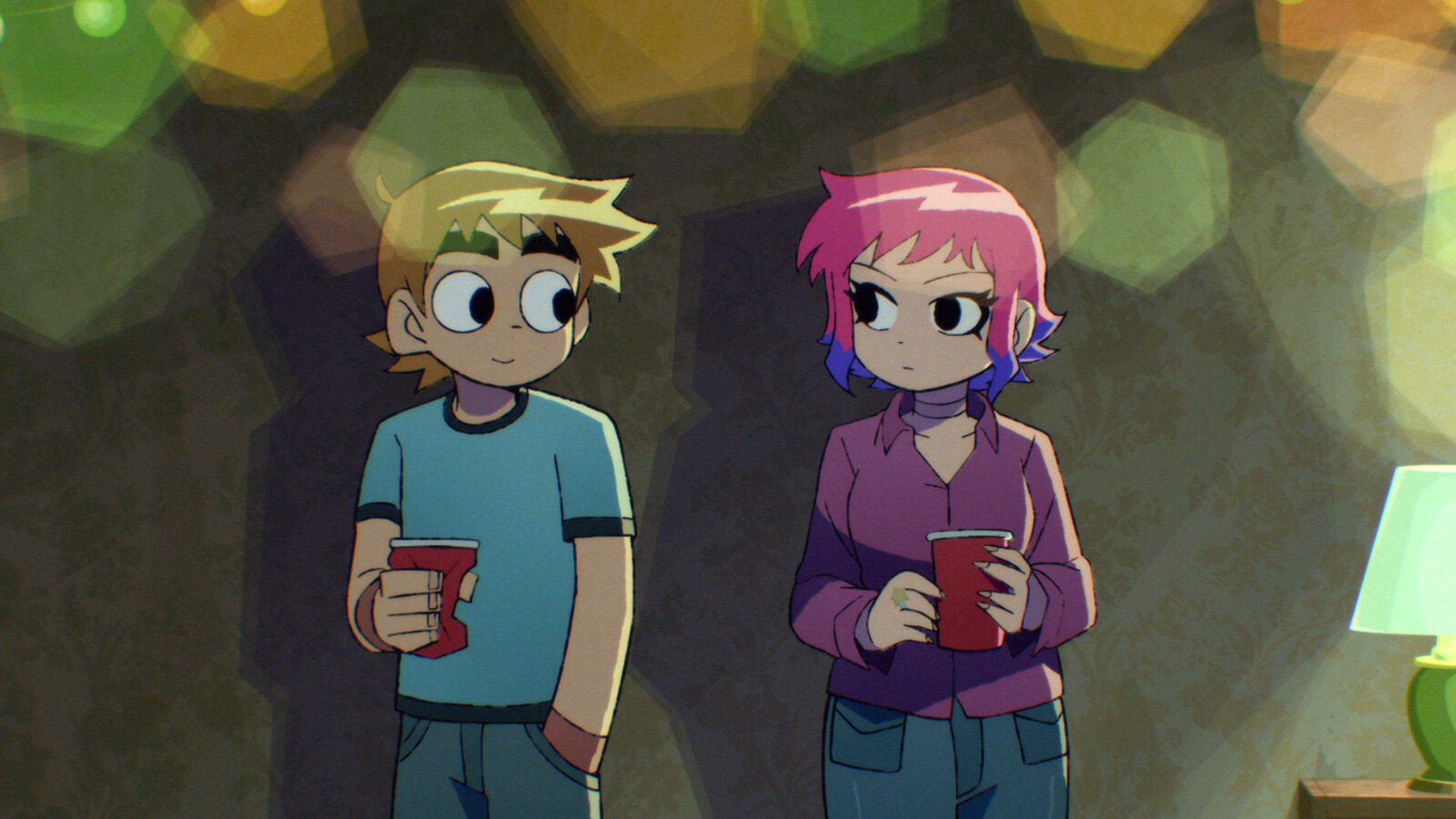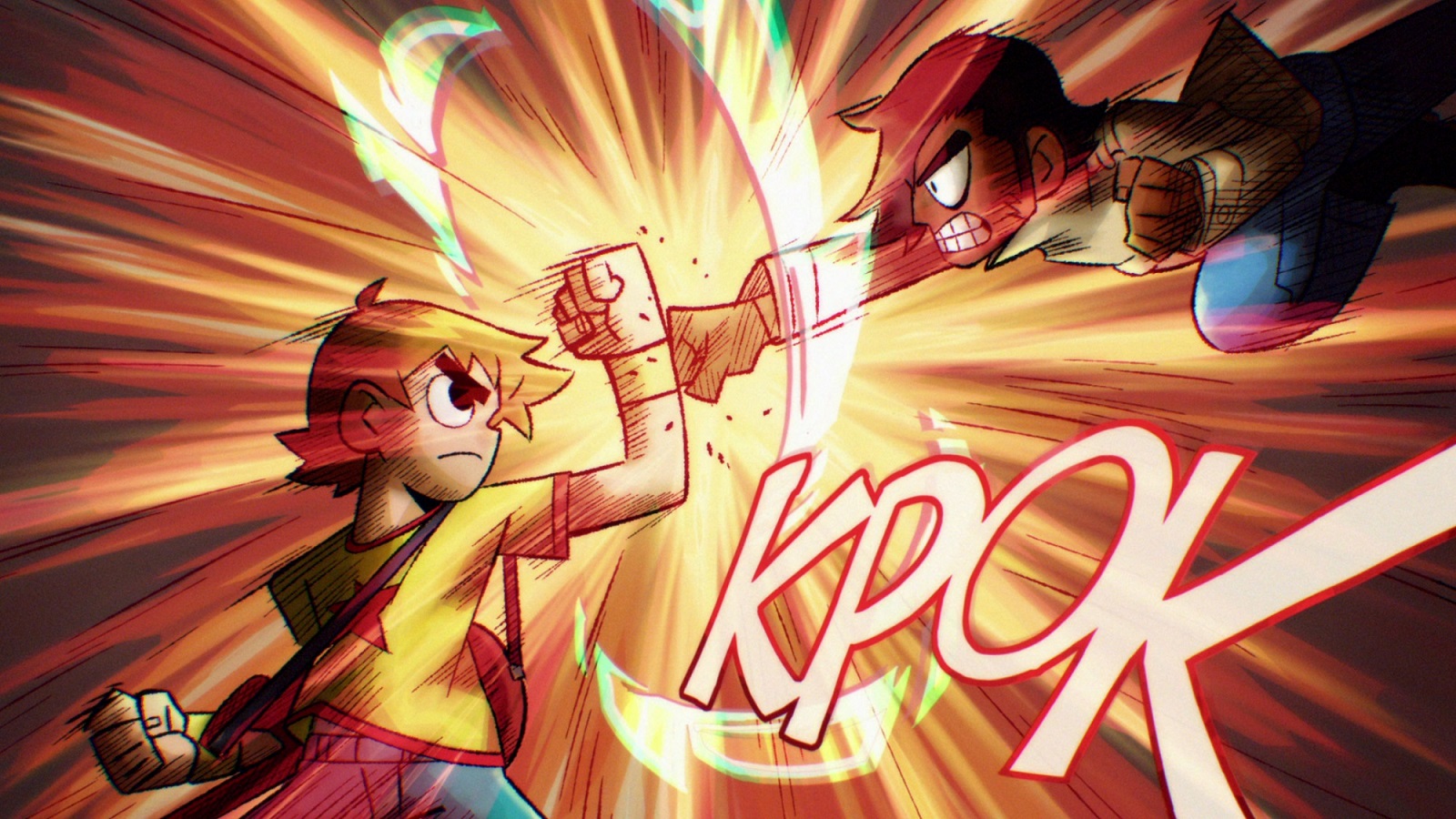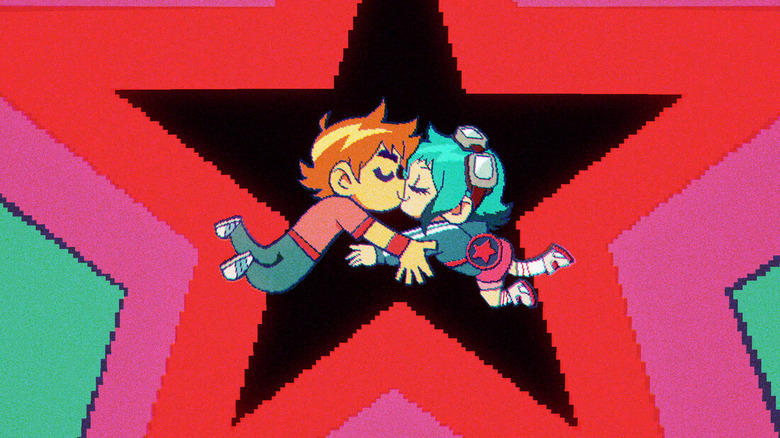Scott Pilgrim Takes Off: Everything Is Both Old And New In Netflix's Anime Adaptation
Now that I've finished watching press screeners for Scott Pilgrim Takes Off, I've decided that the first thing I'm going to do is ... to sit down and watch the whole thing all over again. That's partly because Netflix has made it something of a challenge to review this endlessly charming anime adaptation of Bryan Lee O'Malley's six-volume graphic novels, which follow the travails of a love-struck and video-game-obsessed bass player from Toronto as he chases the girl of his dreams. But, if I'm honest, that's just an excuse.
Really, I'm diving back in because Scott Pilgrim's Precious Little Anime is just so damn fun that I need to experience it all over again, right away.
When I say that Netflix has made reviewing this eight-episode series a challenge, by the way, I'm referring to the lengthy and very specific laundry list of spoilers that the streamer has forbidden us from, well, spoiling. So let's try this in in Pilgrim-esque broad strokes: It's fun! The soundtrack will rock your face off! Doe-eyed Scott and roller-skating Ramona still have insane chemistry and will make you think about love and stuff!

Sorry, I got a little carried away there. Let's try that again. The arrival on Netflix of Scott Pilgrim Takes Off, which comes 13 years after director Edgar Wright's live-action adaptation, matches the graphic novels in everything from its aesthetic — a cartoon that combines manga-inspired visuals with the charm of a comic strip — to its smart-aleck and pun-filled dialogue. Produced by Tokyo anime studio Science Saru and with the entire cast from Wright's film having returned to provide voice work, the show at first seems to set up a faithful recreation of the story in Episode 1.
That is, before careening off into all-new territory with the death or seeming death of (redacted character) by the episode's end.
From there, I'll try to tiptoe around the spoiler prohibitions as best as I can, so you can stop reading right now if you want to approach Scott Pilgrim Takes Off completely fresh. I will say, however, that if you were/are a fan of this franchise, not only do I strongly suspect you'll find the anime version to be as much of a delight as I do. But because this is not a straightforward retread of the graphic novels, I'd hurry up and watch at least the first two episodes, if I was you, before the secrets herein are spoiled on social media.
Broadly, I think I'm safe in saying that O'Malley and writer BenDavid Grabinski found a creative way to make Ramona, rather than our titular hero, serve as the protagonist who drives the anime's plot along. Instead of Scott engaging in combat one-by-one with each of Ramona's former boyfriends in the League of Evil Exes (Scott Pilgrim vs. Matthew Patel. Round one. Fight!) it's Ramona who, instead, gets the opportunity to reckon with her past. Scott is still Scott, of course — as is Knives Chau, Young Neil, Stephen Stills, Stacey Pilgrim, Kim Pine, and Envy Adams.
It's more like a remix, rather than a reboot of the story.
Visually, there are so many inspired touches and Easter Eggs throughout that I don't even know where to begin. Eagle-eyed Netflix viewers will spot the inclusion of fictional movie director Edward "Wrong" at one point in the series, while things like the depiction of paparazzi as camera-wielding ninjas who flip through the air in pursuit of their quarry as well as the video game home screen that starts each episode are among the show's particularly inspired touches.

I would imagine that tackling an adaptation like Scott Pilgrim Takes Off represents one of the most nettlesome kinds of challenges for a creator, especially given this story's cult following. Nostalgia is a powerful force to reckon with. Fortunately, here, the whole thing works. Setting aside the silliness of enemies who explode into a shower of coins, boss battle-style, and the subspace highway that runs directly through Scott's brain, this show just like the graphic novels has managed to find a portal that offers a shortcut straight back to my youth — to a time when video games were life, your romantic entanglements felt almost operatic, and it all somehow always worked out in the end.
